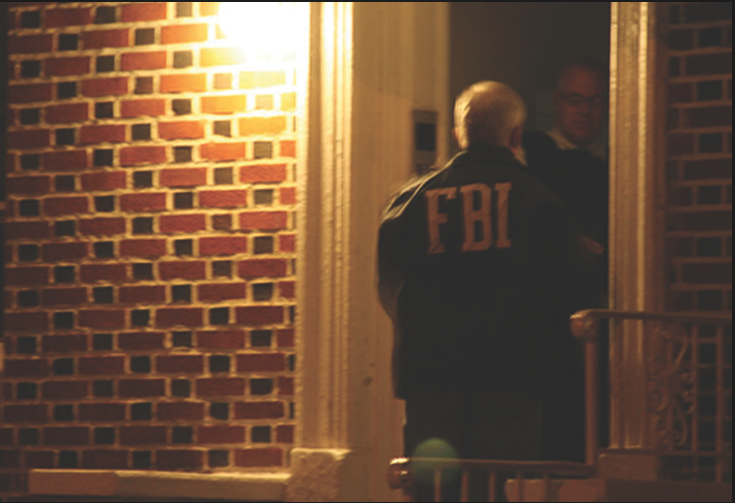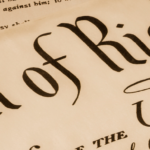Evidence Seized in Violation of the 4th Amendment Must be Suppressed.
If the police search your home without a warrant or a valid exception to the warrant requirement, there is a good chance the presiding judge will order the suppression of any evidence seized.

The 4th Amendment Protects Against Unreasonable Searches and Seizures.
A surprising number of Michigan residents are unaware of their rights when they find themselves the target of a police or law enforcement search, such as a search without a warrant. Most individuals comply with every request an offer makes out of fear of what will happen if they put up any protest because they are afraid and out of their comfort zone. It’s not until much later, when citizens are sitting down with their legal counsel and hashing out their interaction with a law enforcement officer, that they learn they could have lawfully prevented a search of their home and the seizure of evidence. Often, the police can collect evidence during interactions that should have been avoided or were improper.
The Fourth Amendment Right Protects Citizens from Unreasonable Searches Without Warrants
If the police arrive at your door without a search warrant and ask if they can enter your home, you are well within your right to say “no” and cite your Fourth Amendment right that protects citizens from unreasonable search and seizure by police. In most cases, police do not verbally communicate to citizens that they have a right to assert their Fourth Amendment rights in this scenario. The police may even try to coerce and manipulate the individual by claiming they would cooperate with the police if they were innocent. With few exceptions, police must obtain a warrant that a judge has signed to search your property because, generally, a search without a warrant is illegal. Knowing your rights beforehand will help you confidently assert your rights if you find a police officer asking to search your person, home, or car without a warrant.

Read the Entire Warrant to Determine if a Search Without a Warrant was Illegal
If a police officer has obtained a search warrant, you have a right to view the warrant before police enter your home. Most of us lack a legal background and are unsure what information to verify when presented with a search warrant. Start by reading the entire warrant. In Michigan, search warrants include detailed information, including the address of the place approved for search and the specific areas and rooms that may be searched. If a police officer searches a room or structure not outlined on the warrant, the search is illegal. Keep a close watch during the search and report any unlawful behavior to your attorney. As you review the warrant, the first thing to verify is that it has a judge’s signature. Without a signature, the warrant is void. It’s a minor technicality, but one that determines whether or not the warrant is valid. A search based on an unsigned, incomplete, or dishonest warrant is the same as a search without a warrant.
Because of the ambiguity inherent in police searches without and with a warrant, it is imperative that you enlist the guidance of a great criminal defense lawyer with experience getting illegally obtained evidence suppressed in court.
What is the legal basis for judges to suppress evidence seized without a warrant and in violation of the Fourth Amendment?
The legal basis for judges to suppress evidence seized in violation of the Fourth Amendment stems from the exclusionary rule. The Fourth Amendment to the U.S. Constitution protects citizens from unreasonable searches and seizures by the government. It reads:
“The right of the people to be secure in their persons, houses, papers, and effects, against unreasonable searches and seizures, shall not be violated, and no Warrants shall issue, but upon probable cause, supported by Oath or affirmation, and particularly describing the place to be searched, and the persons or things to be seized.”
Fourth Amendment to the U.S. Constitution
The exclusionary rule is a judicially created remedy deterring law enforcement from violating citizens’ Fourth Amendment rights. The rule does this by excluding or suppressing evidence obtained in violation of the Fourth Amendment, such as in a search without a warrant, from being introduced in a criminal trial against the person whose rights were violated.
The foundation for the exclusionary rule in the U.S. was laid down in the case of Weeks v. United States in 1914. In Weeks, the U.S. Supreme Court held that evidence obtained by law enforcement officers in violation of the Fourth Amendment could not be used in a criminal prosecution against the person whose rights were violated. The exclusionary rule was extended to state courts through the Fourteenth Amendment in 1961.
There are exceptions to the exclusionary rule, such as the “good faith” exception (where law enforcement acted on a warrant they believed was valid but was later found defective) and the “inevitable discovery” doctrine (where the evidence would have inevitably been discovered even without the unconstitutional action). However, the basic principle behind the exclusionary rule is to deter law enforcement misconduct and ensure the fairness and integrity of the criminal justice system. So is the system always fair? No! Sometimes you need a credible, reputable, and aggressive defense lawyer, like the ones with LEWIS & DICKSTEIN, P.L.L.C., to stand up and fight for someone’s rights!

Criminal Defense Attorneys Who Will Fight to Protect Your Rights
The Defense Team with LEWIS & DICKSTEIN, P.L.L.C. has vast and extensive experience fighting to get illegally seized evidence thrown out of court and charges dismissed. Our attorneys have filed and won countless Motions to Suppress Evidence due to illegal searches and seizures based on searches without a warrant. When you need a lawyer who is not afraid to win, call us, and we will take the time to talk with you, answer your questions, and address your concerns. We will find a way to help you.
Call us today at (248) 263-6800 for a free consultation or complete an online Request for Assistance Form. We will contact you promptly and find a way to help you.













